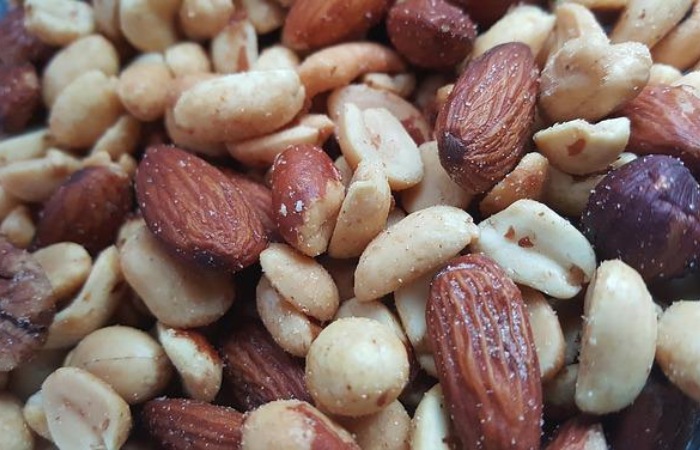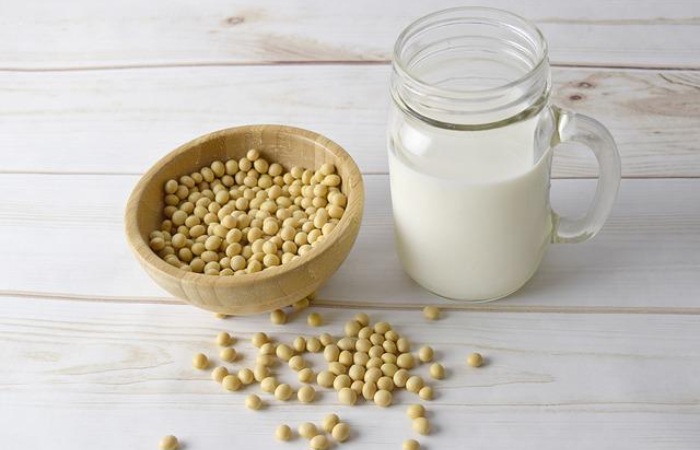Boost Testosterone Levels – Testosterone is a hormone that is secreted by the testicles. It is responsible for the development of male characteristics, such as deepening of the voice, growth of facial and body hair, and increased muscle mass. In this article, you will read about the natural ways that boosts testosterone levels.
The levels typically peak during adolescence and early adulthood. After age 30, levels begin to decline at a rate of about 1-2% per year. Several factors can contribute to low levels, including weight gain, illness, and stress.
Low levels can cause several problems, including decreased sex drive, erectile dysfunction, osteoporosis, and fatigue. In some cases, it can also lead to depression. While testosterone replacement therapy can help to improve symptoms, it is important to talk to a doctor about the risks and benefits before starting any treatment.
Table of Contents
7 Ways That Might Boost Testosterone Levels
1. Eat Plenty Of Healthy Fats Like Omega-3s And Grass-Fed Beef
It’s no secret that testosterone is the hormone responsible for all things manly. From muscle mass to sex drive, this powerful hormone governs men’s many physical and sexual traits. But did you know that there are ways to boost the levels? One way is by eating plenty of healthy fats like Omega-3s and grass-fed beef.
Omega-3 fatty acids are essential for good health. Not only do they support heart health and cognitive function, but they also play a role in its production of it. In fact, it is also believed that men who consume more Omega-3s have higher levels of the hormone.
Grass-fed beef is another excellent source of nutrients that can help to increase the levels. This type of beef is lower in fat and calories than conventional beef, and it is also a good source of protein, zinc, and other minerals that are essential for its production. So if you’re looking for ways to boost the levels, include plenty of healthy fats in your diet. Your body will thank you for it.
2. Get Enough Zinc And Magnesium In Your Diet
Zinc and magnesium are two essential minerals that play a role in testosterone production. While these levels decline with age, it is believed that zinc and magnesium supplementation can help to boost testosterone levels in older men.
In most cases, magnesium deficiency was associated with low levels, and zinc supplementation increased testosterone levels in men with low mineral levels. Zinc is found in foods such as oysters, beef, and pumpkin seeds, while magnesium is found in dark leafy greens, nuts, and whole grains. So make sure to include these nutrient-rich foods in your diet to keep your testosterone levels high.

3. Avoid Soy Products
Soy products have been linked to lower testosterone levels in men. Soy products contain substances called phytoestrogens, which can mimic the effects of estrogen in the body and reduce the levels.
For this reason, it’s best to avoid soy-based foods, such as tofu, soy milk, and edamame. If you must eat soy products, choose fermented ones, such as miso or tempeh, as these are less likely to impact testosterone levels.
4. Exercise Regularly – Especially Weight Training
Exercise has many well-documented benefits, from improving mental health to reducing the risk of chronic diseases. However, exercise can also profoundly impact hormone levels, including testosterone.
Weightlifting is one of the most effective ways to increase the levels. Research shows that just eight weeks of weightlifting can lead to a significant increase in the levels. Other forms of exercise can also be beneficial, but weightlifting is especially effective at boosting testosterone production.
Regular exercise should be a priority for men looking to improve their overall health – and weightlifting should be an integral part of their routine.
5. Reduce Stress Levels As Much As Possible
Stress is a common experience that can take a toll on our physical and mental health. When we feel stressed, our bodies release hormones like cortisol that prepare us to fight or flee from threats. While this “fight or flight” response can be lifesaving in times of danger, chronic stress can lead to long-term health problems like high blood pressure, heart disease, and obesity.
Stress might be also possible to reduce the levels, of the male sex hormone that plays a key role in libido, muscle mass, and fertility. Therefore, it’s important to find ways to reduce stress levels as much as possible to maintain healthy levels.
Many different stress-reduction techniques can be effective, including exercise, meditation, and self-care practices like eating a balanced diet. Experiment with different approaches to see what works best for you. By managing stress effectively, you’ll feel better in the short term and protect your long-term health.

6. Get Adequate Sleep Every Night
Most people know that getting a good night’s sleep is important for overall health, but few realize that it is also crucial for maintaining adequate testosterone levels. Men who sleep less than six hours per night have significantly lower levels than those who get seven to eight hours of sleep.
In addition, men who suffer from sleep apnea or other sleep disorders often have low testosterone levels. Fortunately, there are simple steps that men can take to improve their sleep and boost their levels. By following a regular sleep schedule, creating a relaxing bedtime routine, and ensuring that the bedroom is dark and quiet, men can help ensure that they get the restful sleep they need to maintain optimal levels.
7. Avoid Drinking Too Much Alcohol Or Caffeine
Drinking too much alcohol or caffeine can have a negative impact on your testosterone levels. Alcohol consumption can reduce the levels by affecting the hormones that control it, and excessive drinking can also lead to liver damage, which can further reduce its production.
The relationship between testosterone levels, men’s physical health, and its importance in the physiology of tissues and organs. is well known. Decreased levels might cause hypoactive sexual libido.
Caffeine, on the other hand, can increase cortisol levels, which can interfere with testosterone production. In addition, alcohol and caffeine can have a diuretic effect, leading to dehydration and electrolyte imbalance – both of which can impact hormone levels. Therefore, if you want to maintain healthy testosterone levels, it’s best to moderate your alcohol and caffeine intake.

